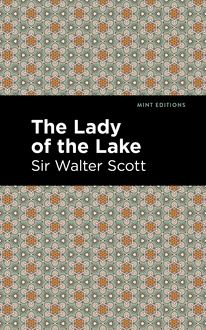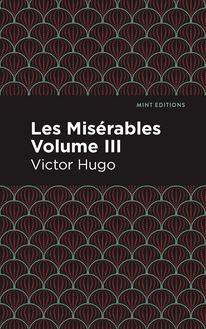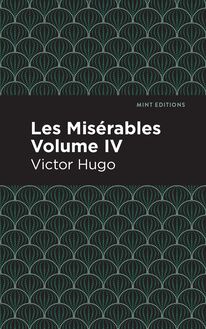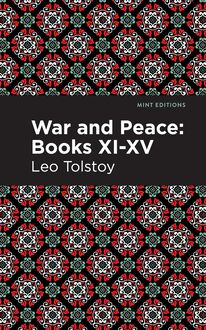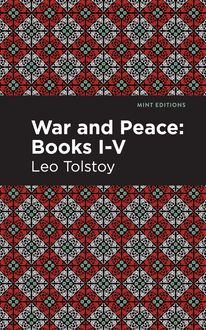-
 Univers
Univers
-
 Ebooks
Ebooks
-
 Livres audio
Livres audio
-
 Presse
Presse
-
 Podcasts
Podcasts
-
 BD
BD
-
 Documents
Documents
-
- Cours
- Révisions
- Ressources pédagogiques
- Sciences de l’éducation
- Manuels scolaires
- Langues
- Travaux de classe
- Annales de BEP
- Etudes supérieures
- Maternelle et primaire
- Fiches de lecture
- Orientation scolaire
- Méthodologie
- Corrigés de devoir
- Annales d’examens et concours
- Annales du bac
- Annales du brevet
- Rapports de stage
La lecture à portée de main
Vous pourrez modifier la taille du texte de cet ouvrage
Découvre YouScribe en t'inscrivant gratuitement
Je m'inscrisDécouvre YouScribe en t'inscrivant gratuitement
Je m'inscrisEn savoir plus
Vous pourrez modifier la taille du texte de cet ouvrage
En savoir plus

Description
War and Peace (1869) is a novel by Russian writer Leo Tolstoy. Serialized between 1865 and 1867, it was published in book form in 1869 and has since been recognized as a masterpiece of world literature. Notable for its epic scale, War and Peace encompasses hundreds of characters, diligently following its five central families across fifteen years while featuring detailed imaginings of such historical figures as Napoleon Bonaparte. In Books I-V, he introduces the novels main characters while setting the stage for war between France and Russia. When conflict finally breaks out, friends and family members are torn apart, political alliances are shattered, and peace gives way to violence and despair. The novel begins with a soirée at the Saint Petersburg home of Anna Pavlovna Scherer. This scene not only introduces the central characters of the story, it gives a sense of the extensive French influence on Russian aristocratic society in 1805. Here, Pierre Bezukhov—the illegitimate son of a wealthy nobleman—and his friend Prince Andrei Nikolayevich Bolkonsky discuss their mutual dissatisfaction with life in Saint Petersburg. While Andrei goes to war in order to escape an unhappy marriage, Pierre becomes trapped in the bitter dispute surrounding his inheritance. As the years go by, those who remain in Moscow and Saint Petersburg must adjust to the realities of war, while those such as Andrei and Count Nikolai Ilyich Rostov experience firsthand the horrors of conflict. With its depiction of the Battle of Austerlitz, a stunning defeat for Russia and its Austrian allies, Tolstoy’s story brings history to life while reminding us that the past is always closer than we care to think. As ambitious as it is triumphant, Leo Tolstoy’s masterpiece is an epic novel of history and family, a story of faith and the will to persevere in the face of unspeakable catastrophe. War and Peace is a work that transcends both history and description, not just for the scale of its narrative and setting, but for the scope of its philosophical interests. Since its publication, it has been praised as an essential work of literature by Ivan Turgenev, Gustave Flaubert, Thomas Mann, and Ernest Hemingway, and has been adapted for film, theater, and television countless times. With a beautifully designed cover and professionally typeset manuscript, this edition of Leo Tolstoy’s War and Peace is a classic of Russian literature reimagined for modern readers.
Sujets
Informations
| Publié par | Mint Editions |
| Date de parution | 01 mars 2020 |
| Nombre de lectures | 0 |
| EAN13 | 9781513263939 |
| Langue | English |
| Poids de l'ouvrage | 4 Mo |
Informations légales : prix de location à la page 0,0550€. Cette information est donnée uniquement à titre indicatif conformément à la législation en vigueur.
Extrait
War and Peace
Books I–V
Leo Tolstoy
War and Peace: Books I–V was first published in 1867.
This edition published by Mint Editions 2021.
ISBN 9781513263380 | E-ISBN 9781513263939
Published by Mint Editions®
minteditionbooks.com
Publishing Director: Jennifer Newens
Design & Production: Rachel Lopez Metzger
Project Manager: Micaela Clark
Translated by: Louise and Aylmer Maude
Typesetting: Westchester Publishing Services
C ONTENTS B OOK O NE . 1805 I II III IV V VI VII VIII IX X XI XII XIII XIV XV XVI XVII XVIII XIX XX XXI XXII XXIII XXIV XXV XXVI XXVII XXVIII B OOK T WO . 1805 I II III IV V VI VII VIII IX X XI XII XIII XIV XV XVI XVII XVIII XIX XX XXI B OOK T HREE . 1805 I II III IV V VI VII VIII IX X XI XII XIII XIV XV XVI XVII XVIII XIX B OOK F OUR . 1806 I II III IV V VI VII VIII IX X XI XII XIII XIV XV XVI B OOK F IVE . 1806–07 I II III IV V VI VII VIII IX X XI XII XIII XIV XV XVI XVII XVIII XIX XX XXI XXII
BOOK ONE
1805
I
“ W ell, Prince, so Genoa and Lucca are now just family estates of the Buonapartes. But I warn you, if you don’t tell me that this means war, if you still try to defend the infamies and horrors perpetrated by that Antichrist—I really believe he is Antichrist—I will have nothing more to do with you and you are no longer my friend, no longer my ‘faithful slave,’ as you call yourself! But how do you do? I see I have frightened you—sit down and tell me all the news.”
It was in July, 1805, and the speaker was the well-known Anna P á vlovna Sch é rer, maid of honor and favorite of the Empress M á rya F ë dorovna. With these words she greeted Prince Vas í li Kur á gin, a man of high rank and importance, who was the first to arrive at her reception. Anna P á vlovna had had a cough for some days. She was, as she said, suffering from la grippe; grippe being then a new word in St. Petersburg, used only by the elite.
All her invitations without exception, written in French, and delivered by a scarlet-liveried footman that morning, ran as follows:
“If you have nothing better to do, Count (or Prince), and if the prospect of spending an evening with a poor invalid is not too terrible, I shall be very charmed to see you tonight between 7 and 10—Annette Sch é rer.”
“Heavens! what a virulent attack!” replied the prince, not in the least disconcerted by this reception. He had just entered, wearing an embroidered court uniform, knee breeches, and shoes, and had stars on his breast and a serene expression on his flat face. He spoke in that refined French in which our grandfathers not only spoke but thought, and with the gentle, patronizing intonation natural to a man of importance who had grown old in society and at court. He went up to Anna P á vlovna, kissed her hand, presenting to her his bald, scented, and shining head, and complacently seated himself on the sofa.
“First of all, dear friend, tell me how you are. Set your friend’s mind at rest,” said he without altering his tone, beneath the politeness and affected sympathy of which indifference and even irony could be discerned.
“Can one be well while suffering morally? Can one be calm in times like these if one has any feeling?” said Anna P á vlovna. “You are staying the whole evening, I hope?”
“And the fete at the English ambassador’s? Today is Wednesday. I must put in an appearance there,” said the prince. “My daughter is coming for me to take me there.”
“I thought today’s fete had been canceled. I confess all these festivities and fireworks are becoming wearisome.”
“If they had known that you wished it, the entertainment would have been put off,” said the prince, who, like a wound-up clock, by force of habit said things he did not even wish to be believed.
“Don’t tease! Well, and what has been decided about Novos í ltsev’s dispatch? You know everything.”
“What can one say about it?” replied the prince in a cold, listless tone. “What has been decided? They have decided that Buonaparte has burnt his boats, and I believe that we are ready to burn ours.”
Prince Vas í li always spoke languidly, like an actor repeating a stale part. Anna P á vlovna Sch é rer on the contrary, despite her forty years, overflowed with animation and impulsiveness. To be an enthusiast had become her social vocation and, sometimes even when she did not feel like it, she became enthusiastic in order not to disappoint the expectations of those who knew her. The subdued smile which, though it did not suit her faded features, always played round her lips expressed, as in a spoiled child, a continual consciousness of her charming defect, which she neither wished, nor could, nor considered it necessary, to correct.
In the midst of a conversation on political matters Anna P á vlovna burst out:
“Oh, don’t speak to me of Austria. Perhaps I don’t understand things, but Austria never has wished, and does not wish, for war. She is betraying us! Russia alone must save Europe. Our gracious sovereign recognizes his high vocation and will be true to it. That is the one thing I have faith in! Our good and wonderful sovereign has to perform the noblest role on earth, and he is so virtuous and noble that God will not forsake him. He will fulfill his vocation and crush the hydra of revolution, which has become more terrible than ever in the person of this murderer and villain! We alone must avenge the blood of the just one… Whom, I ask you, can we rely on? … England with her commercial spirit will not and cannot understand the Emperor Alexander’s loftiness of soul. She has refused to evacuate Malta. She wanted to find, and still seeks, some secret motive in our actions. What answer did Novos í ltsev get? None. The English have not understood and cannot understand the self-abnegation of our Emperor who wants nothing for himself, but only desires the good of mankind. And what have they promised? Nothing! And what little they have promised they will not perform! Prussia has always declared that Buonaparte is invincible, and that all Europe is powerless before him… And I don’t believe a word that Hardenburg says, or Haugwitz either. This famous Prussian neutrality is just a trap. I have faith only in God and the lofty destiny of our adored monarch. He will save Europe!”
She suddenly paused, smiling at her own impetuosity.
“I think,” said the prince with a smile, “that if you had been sent instead of our dear Wintzingerode you would have captured the King of Prussia’s consent by assault. You are so eloquent. Will you give me a cup of tea?”
“In a moment. À propos,” she added, becoming calm again, “I am expecting two very interesting men tonight, le Vicomte de Mortemart, who is connected with the Montmorencys through the Rohans, one of the best French families. He is one of the genuine é migr é s, the good ones. And also the Abb é Morio. Do you know that profound thinker? He has been received by the Emperor. Had you heard?”
“I shall be delighted to meet them,” said the prince. “But tell me,” he added with studied carelessness as if it had only just occurred to him, though the question he was about to ask was the chief motive of his visit, “is it true that the Dowager Empress wants Baron Funke to be appointed first secretary at Vienna? The baron by all accounts is a poor creature.”
Prince Vas í li wished to obtain this post for his son, but others were trying through the Dowager Empress M á rya F ë dorovna to secure it for the baron.
Anna P á vlovna almost closed her eyes to indicate that neither she nor anyone else had a right to criticize what the Empress desired or was pleased with.
“Baron Funke has been recommended to the Dowager Empress by her sister,” was all she said, in a dry and mournful tone.
As she named the Empress, Anna P á vlovna’s face suddenly assumed an expression of profound and sincere devotion and respect mingled with sadness, and this occurred every time she mentioned her illustrious patroness. She added that Her Majesty had deigned to show Baron Funke beaucoup d’estime, and again her face clouded over with sadness.
The prince was silent and looked indifferent. But, with the womanly and courtierlike quickness and tact habitual to her, Anna P á vlovna wished both to rebuke him (for daring to speak as he had done of a man recommended to the Empress) and at the same time to console him, so she said:
“Now about your family. Do you know that since your daughter came out everyone has been enraptured by her? They say she is amazingly beautiful.”
The prince bowed to signify his respect and gratitude.
“I often think,” she continued after a short pause, drawing nearer to the prince and smiling amiably at him as if to show that political and social topics were ended and the time had come for intimate conversation—“I often think how unfairly sometimes the joys of life are distributed. Why has fate given you two such splendid children? I don’t speak of Anatole, your youngest. I don’t like him,” she added in a tone admitting of no rejoinder and raising her eyebrows. “Two such charming children. And really you appreciate them less than anyone, and so you don’t deserve to
-
 Univers
Univers
-
 Ebooks
Ebooks
-
 Livres audio
Livres audio
-
 Presse
Presse
-
 Podcasts
Podcasts
-
 BD
BD
-
 Documents
Documents
-
Jeunesse
-
Littérature
-
Ressources professionnelles
-
Santé et bien-être
-
Savoirs
-
Education
-
Loisirs et hobbies
-
Art, musique et cinéma
-
Actualité et débat de société
-
Jeunesse
-
Littérature
-
Ressources professionnelles
-
Santé et bien-être
-
Savoirs
-
Education
-
Loisirs et hobbies
-
Art, musique et cinéma
-
Actualité et débat de société
-
Actualités
-
Lifestyle
-
Presse jeunesse
-
Presse professionnelle
-
Pratique
-
Presse sportive
-
Presse internationale
-
Culture & Médias
-
Action et Aventures
-
Science-fiction et Fantasy
-
Société
-
Jeunesse
-
Littérature
-
Ressources professionnelles
-
Santé et bien-être
-
Savoirs
-
Education
-
Loisirs et hobbies
-
Art, musique et cinéma
-
Actualité et débat de société
- Cours
- Révisions
- Ressources pédagogiques
- Sciences de l’éducation
- Manuels scolaires
- Langues
- Travaux de classe
- Annales de BEP
- Etudes supérieures
- Maternelle et primaire
- Fiches de lecture
- Orientation scolaire
- Méthodologie
- Corrigés de devoir
- Annales d’examens et concours
- Annales du bac
- Annales du brevet
- Rapports de stage



